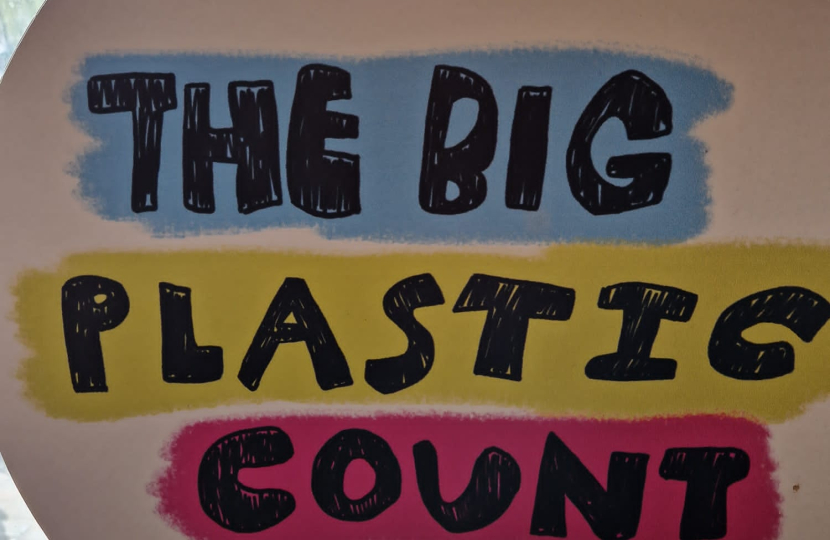
I appreciate, and share, constituent concerns about the amount of plastic that is used in everyday life in the UK. Plastic pollution is a scourge on the environment – there is no doubt, and I commend the fact that so many people across the country are making their own sustainable choices regarding the use of everyday items.
The UK is currently a world leader in tackling plastic pollution and the Government has made significant progress relating to plastic pollution though its 25 Year Environment Plan’s ambition to eliminate all avoidable plastic waste.
Details on how this will be achieved are set out in The Resources & Waste Strategy for England plans to reduce, reuse and recycle more plastic, and Ministers have committed to work towards all plastic packaging on the market being recyclable or reusable by 2025.
We have already made significant progress to address plastic pollution in the UK, including a ban on microbeads and restricting the supply of plastic straws, plastic drink stirrers, and plastic-stemmed cotton buds. The use of single-use carrier bags in supermarkets has reduced by over 98 per cent.
Further, restrictions on a range of single-use plastics, including plastic plates, trays, bowls, cutlery, balloon sticks and certain types of polystyrene cups and food containers have now come into force. I understand that England uses 2.7 billion items of single-use cutlery and over 700 million single-use plates per year, but only 10 per cent are recycled. This new ban is the next step in cracking down on harmful plastic waste.
Through the Environment Act 2021, the Government has also set a target is to halve residual waste by 2042. This refers to waste that is sent to landfill, put through incineration, or used in energy recovery in the UK or overseas. This is an intentionally broad target, which will include the most environmentally harmful materials like plastics, rather than banning a single type of material and risk producers moving to a different, more harmful material.
It is clear urgent action is needed to address plastic pollution. Alarmingly, the annual flow of plastic into the ocean is predicted to triple between 2016 and 2040 and is already having a devastating impact on our natural environment.
Earlier in 2023, in negotiations of the Intergovernmental Negotiating Committee at the United Nations Environment Assembly, the UK Government strongly pressed for a combination of international obligations and national measures across the whole plastic lifecycle to ensure that the treaty can adequately address the transboundary nature of plastic pollution.
The UK called for provisions to restrain and reduce the production and consumption of plastic to sustainable levels; address plastic design; and increase the safe circularity of plastics in the economy, guided by the waste hierarchy. The UK has also supported measures to manage plastic waste in an environmentally sound and safe manner and eliminate the release of plastics, including microplastics, into air, water and land.
Further, I am aware that the UK is a founding member of the High Ambition Coalition to end plastic pollution. This is a group of 50 countries that is calling for a target under the treaty to stop plastic from flowing into the environment by 2040. This was reiterated at the G7 meeting in Japan in 2023, where G7 nations committed to ending plastic pollution with the ambition to reduce additional plastic pollution to zero by 2040.
Ministers recognise the need to monitor plastic pollution and the UK co-funds the Marine Conservation Society’s recording of litter from our coast. This helps to monitor plastic pollution levels. The Government also supports initiatives to remove or remediate plastic in the marine environment, including the Fishing for Litter initiative, which is a voluntary, unpaid litter bycatch removal scheme for commercial fishermen.
Finally, the UK supports international action through the £500 million Blue Planet Fund. This aims to protect and enhance the marine environment, focusing on tackling marine pollution and supporting coastal communities. The Government is also working with the Global Plastic Action Partnership to take action on tackling pollution in developing countries.
I hope this helps to reassure constituents that the Government is taking the issue of plastic waste very seriously.
Please do follow this link to read more about the Plastic Treaty:




